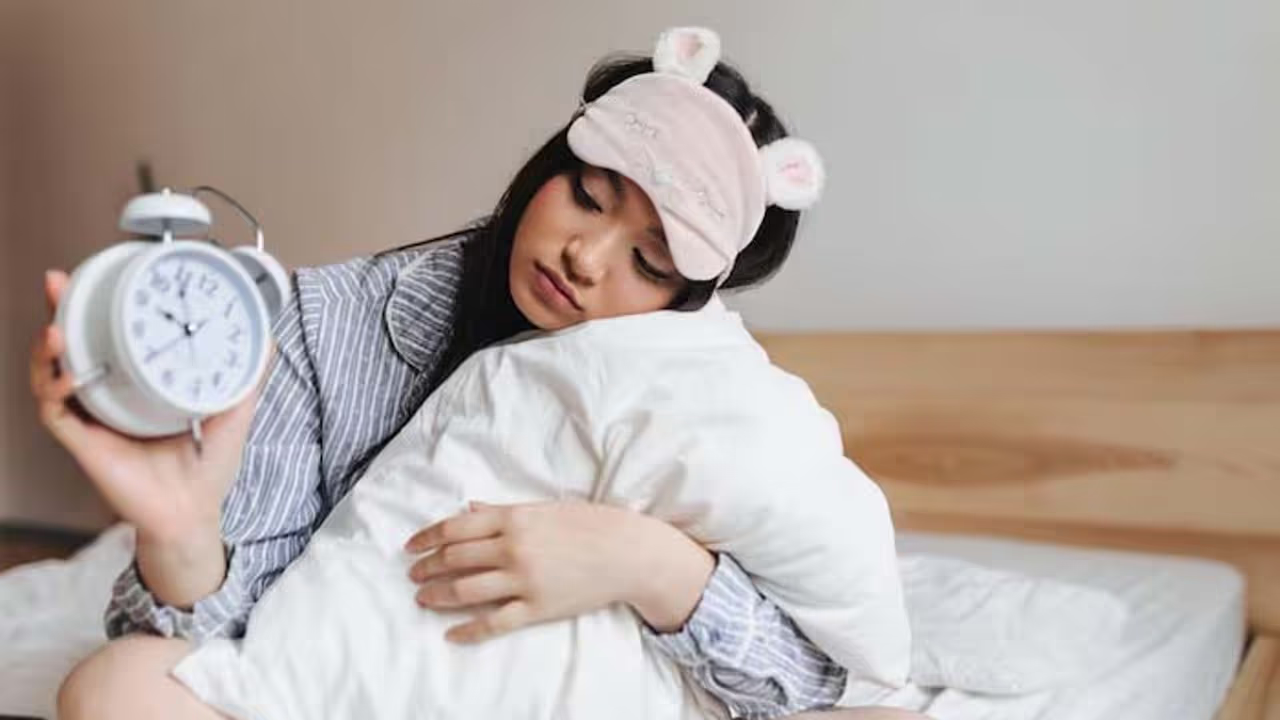Women’s sleep cycles evolve throughout life due to hormonal shifts, lifestyle changes, and aging, making it essential to understand these patterns for better sleep health.
Sleep is quite crucial to the overall state of health, but women's sleep cycles differ with age, lifestyle, and hormones. Knowledge of the alteration may contribute to enhancing the quality of sleep during all phases of life.

How sleep cycle changes with different stages of life:
1. Childhood and Adolescence: Formation of Sleep Habits
In adolescence and childhood, more sleep needs occur—usually 9–11 hours. Adolescence introduces the hormonal shifts that can interfere with sleep, however. Most teenage girls experience delayed sleep onset and irregular cycles because their higher levels of melatonin cause them to struggle waking up early enough to attend school.
2. Early Adulthood: Lifestyle and Stress Influence
Between 20 and 30 years, women are involved in work, social interactions, and relationships, breaking their sleeping routine. Decreased sleep time and quality of sleep may be a result of stress, computer screen exposure, and unsocial hours. Women are more likely to begin developing premenstrual sleep disturbance due to hormone fluctuation at this age.
3. Pregnancy: Sleep Challenges and Changes
Sleep is greatly influenced by pregnancy as a result of hormonal change, body pain, and frequency of urination. Progesterone increases in the first trimester, making one sleepy. The second trimester becomes a little better, but during the third trimester there is insomnia, vivid dreaming, and being unable to find a comfortable position to sleep in.
4. Postpartum and Motherhood: Sleep Deprivation
New mothers undergo severe sleep interruption with baby care and hormonal fluctuation. Sleep patterns are interfered with, and nocturnal arousal is persistent. Sleep loss is common in most women, and it can lead to postpartum depression.
5. Menstruation and Perimenopause: Instability of Sleep
During reproductive ages, menstrual cycles disturb sleep in the forms of water retention, hormonal changes, and cramps. Before perimenopause (40s to 50s), as the estrogen and progesterone levels start reducing, there occurs night sweats, insomnia, and wakefulness at night.
6. Menopause and Aging: Sleep Quality Decreases
Menopause leads to a permanent alteration of the sleep cycles. Sleep insomnia, slow-wave sleep decrease, and multiple arousals are most prevalent in most women. Tension, hot flashes, and melatonin changes are etiologies for abnormal sleep. Aging-induced lighter sleep also makes older women susceptible to alterations.
Women's sleep patterns change over the course of life based on hormonal changes and lifestyles prompted by needs. Good sleep hygiene practice, stress avoidance, and medical support where necessary will facilitate better sleep at any age. Restful living induces general well-being and emotional harmony.


